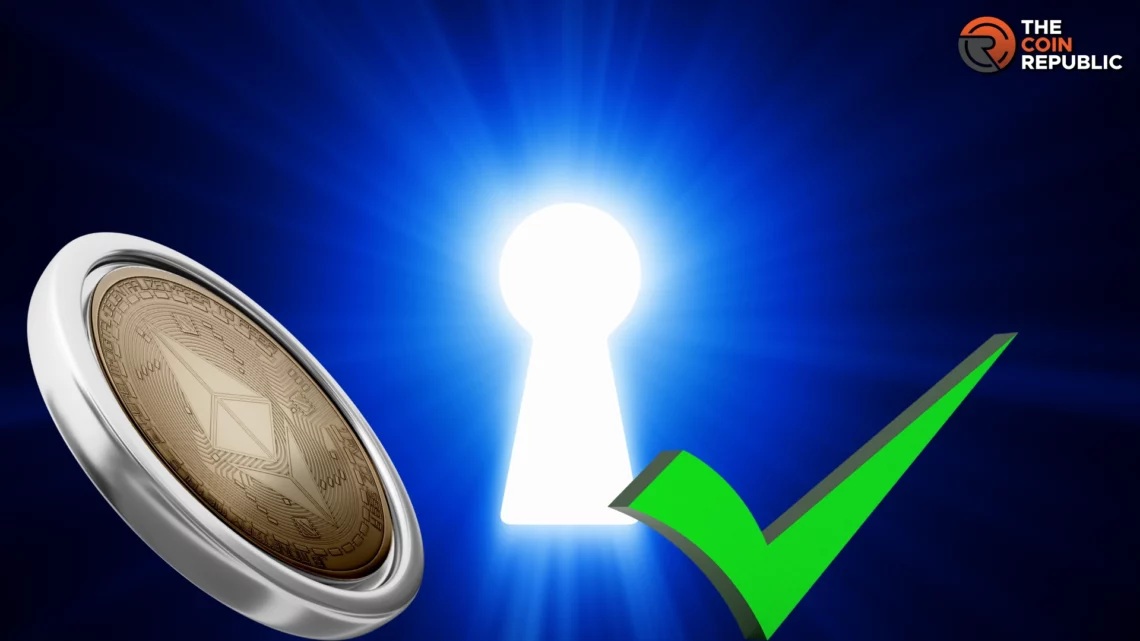The widely awaited Pectra hard fork is set to take place in late 2024 or early 2025 and is intended to transform the Ethereum system.
The main component of this update is EIP-3074, which adds an innovative “social recovery” function. This could eliminate the problem of lost private keys for Ethereum users.
Empowering Ethereum Wallets With Smart Contract Capabilities
The EIP-3074 will unlock the big potential of simple ether wallets, commonly known as externally owned accounts (EOAs), by granting them a broad spectrum of smart contract abilities.
This also includes the recovery of assets as a feature that could completely change the concept of asset management in the Ethereum-based world.
The Mechanics Of Social Recovery
The social recovery feature works by allowing users to delegate the ownership of their assets to an “invoker” contract, which will then perform future transactions and function calls on the user’s behalf.
Crucially, the message in the digital signature used to authorize these actions will enable users to retrieve their assets if they ever lose or forget their seed phrase. This functionality is made possible by implementing two new Ethereum opcodes: “AUTH” and “AUTHCALL.”
The AUTH opcode checks if a user’s signature and action were signed correctly. The AUTHCALL opcode executes the transaction, with the user as the caller instead of the invoker contract.

Addressing Delegation Risks
Although the social recovery feature enhances asset management, Ethereum Foundation researcher “Domothy” has expressed concerns. They worry that users could risk losing funds if they delegate assets to a malicious invoker contract.
To address this risk, Domothy expects the availability of formally verified and fully audited invoker contracts post-Pectra upgrade.
These contracts will offer users reliable options to mitigate potential security concerns.
Solving The Private Key Conundrum
The Pectra hard fork’s social recovery feature could not come at a more opportune time. It’s estimated that billions of dollars worth of cryptocurrency have been lost over the years due to users forgetting or losing their private keys, a problem that has long plagued the crypto industry.
Eliminating The Need For Ether
Another critical advantage of EIP-3074 is that users won’t need any Ether (ETH) in their wallet to send transactions, as the entity behind the invoker contract can pay for the transaction fees upfront.
This could be a significant boon for gaining mass retail adoption, as it removes a common barrier to entry for new Ethereum users.
Streamlining Transactions With Batching
EIP-3074 also enables multiple actions in a single transaction, addressing a longstanding pain point for Ethereum users. For example, currently, users must approve a decentralized exchange like Uniswap to use their tokens and then run the actual swap.
With the introduction of EIP-3074, these two actions can be batched into a single transaction, streamlining the process and improving the user experience.
Conclusion
The Pectra hard fork and EIP-3074 mark a significant step forward for Ethereum. Introducing a “social recovery” feature addresses the challenge of lost private keys, a critical barrier to cryptocurrency adoption.
Despite risks like potential fund drainage by malicious contracts, efforts are underway to provide verified and audited options.
With benefits like eliminating the need for Ether in transactions and enabling streamlined processing, Pectra promises a more user-friendly and secure asset management experience.
Ethereum users can anticipate a future where private critical loss is less of a worry, fostering a more accessible decentralized finance ecosystem.

Nancy J. Allen is a crypto enthusiast, with a major in macroeconomics and minor in business statistics. She believes that cryptocurrencies inspire people to be their own banks, and step aside from traditional monetary exchange systems. She is also intrigued by blockchain technology and its functioning. She frequently researches, and posts content on the top altcoins, their theoretical working principles and technical price predictions.


 Home
Home News
News










